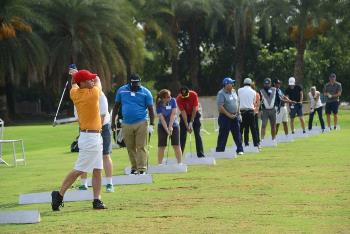Following on our previous post ‘How Generalists Are Necessary for the Collaborative Age‘, let’s continue some exploration of the excellent book ‘Range: Why Generalists Triumph in a Specialized World‘ by David Epstein. One of the main topics in the book is to show that the famous 10,000 hours rule for mastering some area of knowledge is actually only applicable to certain types of activities that are bound by clear rules: chess, music, golf. It does not apply to mastering complexity or any activity that does not respond to those characteristics.

“The bestseller Talent Is Overrated used the Polgar sisters and Tiger Woods as proof that a head start in deliberate practice is the key to success in “virtually any activity that matters to you.” The powerful lesson is that anything in the world can be conquered in the same way. It relies on one very important, and very unspoken, assumption: that chess and golf are representative examples of all the activities that matter to you.”
The concept of the 10,000 h rule to master some practice is thus upended. Worst, “In 2009, Kahneman and Klein [found that] whether or not experience inevitably led to expertise, they agreed, depended entirely on the domain in question“. Sometimes even “In the most devilishly wicked learning environments, experience will reinforce the exact wrong lessons.”
Thus in the real complex world, actual learning must happen differently that repeating many times the same exercise in a predictable environment. It probably requires exposure to many different situations. Learning also cannot be expected to be continuous: it is probably discontinuous, with some ‘aha’ moments separated by slow maturing of new understanding.
Quite some thoughts that upend a lot of common knowledge. And still more thoughts that put into question traditional education.
